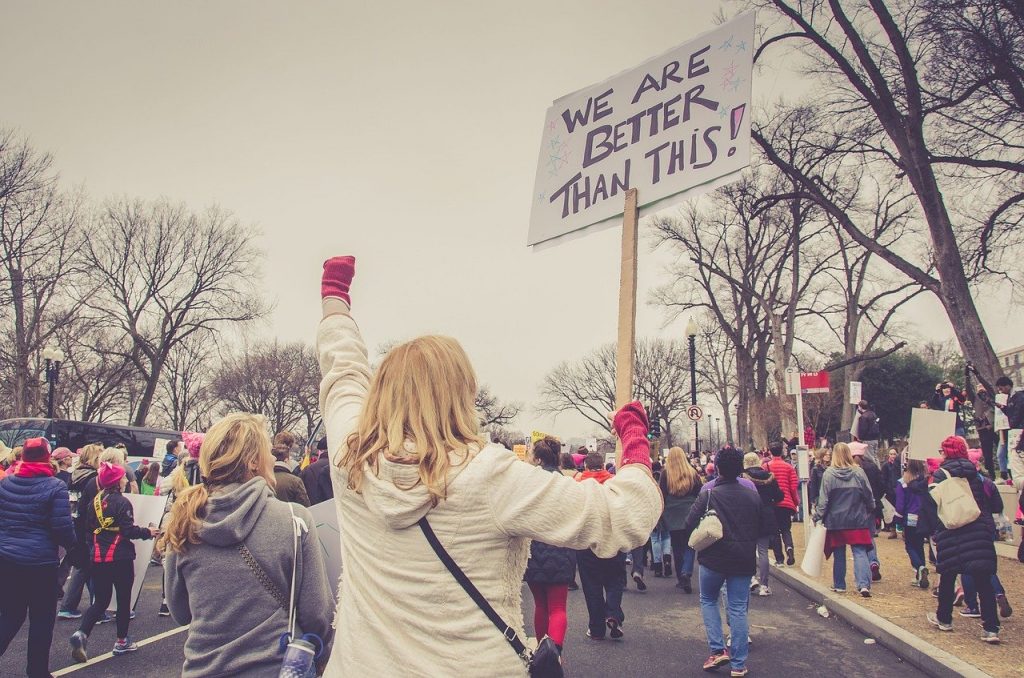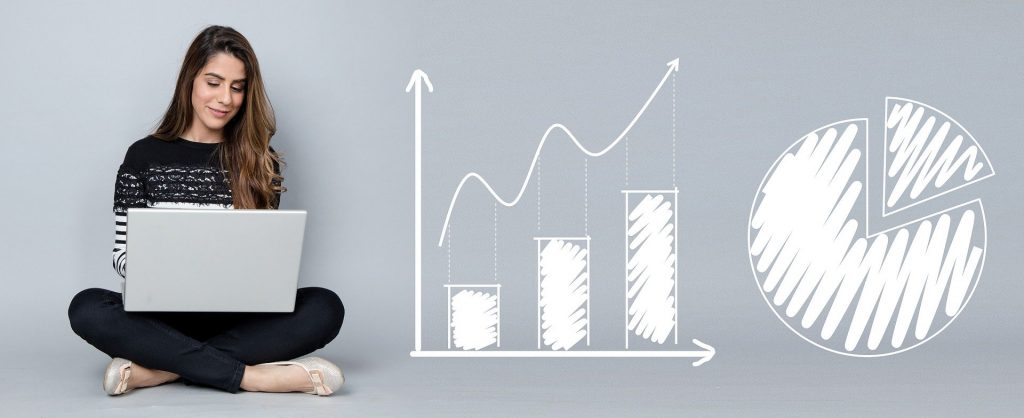I have never believed that focusing on yourself first is selfish. In fact, I am firmly convinced that prioritizing yourself and building a strong and solid foundation for your life is one of the healthiest pursuits that any human being can undertake.
Focusing on yourself is not selfish – at least, not based on the definition of the word that you might find in the dictionary.
According to Google, selfish is defined as:
(of a person, action, or motive) lacking consideration for others; concerned chiefly with one’s own personal profit or pleasure.
Source: https://www.google.com/search?q=dictionary+selfish
But, we are not talking about this type of selfish. We’re talking about a different kind of selfish, here. Healthy selfishness.
The difference? It has nothing to do with the dictionary-depiction of selfish. Healthy selfishness isn’t about “lacking consideration for others” or only focusing on one’s self.
In reality, there are two very distinct types of selfishness: the healthy and the bad. The healthy kind is what enables us to pursue our dreams and give back to our communities, acting as strong and confident people who are capable of incredible things.
Our ability to give back and help others is immensely connected with our personal foundation. The better our personal selves, the more effective we are at focusing on things outside of ourselves.
The problem? The term “selfish” has a negative connotation, and nobody wants to be labeled selfish.
Our ability to give back and help others is immensely connected with our personal foundation.
The secret to happiness is in helping others – writes Time, and virtually every psychologist has found a striking increase in happiness when we’re giving back, getting involved and improving our communities. When we get involved in something bigger than ourselves, we tend to become much happier people.
Healthy selfishness prepares us to give back more, get involved stronger and improve our communities better because we are happy and healthy people. We’re strong and focused.
We have our proverbial shit together.
And when we have our shit together, we don’t need to waste precious brain waves on personal problems or feelings of inadequacy. Or worrying about our own futures, feeling that we don’t make enough money or don’t provide enough for our families.
You might say:
“But Steve, everybody already knows that they can’t neglect themselves. This is nothing new.”
Respectfully, that’s nonsense.
I flatly reject the notion that “everybody” knows that they cannot neglect themselves. In fact, self-neglect is so common that it’s an actual thing. A thing that a lot of people deal with every single day.
And, there’s a Wikipedia page on it. And a write-up in this medical newsletter. And at the National Institutes of Health.

The simple fact is people struggle with self-neglect all the time, and for a variety of reasons. I’m no psychologist so it’s not my place to analyze or critique the causes or lifestyles that trigger self-neglect. Clearly, that’s outside of my wheelhouse.
I am here to tell you it’s a serious problem and certainly not an illness to assume everybody knows how to solve or avoid.
And, healthy selfishness goes beyond self-neglect or hygiene. It’s one thing to provide for your basic needs. To be clean and tidy. To live in a warm home and wear clean clothes every day.
Healthy selfishness goes much further, and includes:
- a solid emotional state free of unnecessary worry
- earning enough for basic needs as well as amassing wealth
- feeling comfortable at home and energized at the office
- enjoying a supportive and loving marriage or partnership
When our minds aren’t controlled by feelings of inadequacy, stress and worry, they are free to explore. Free to seek out bigger and better things.
Distilled down, focusing on (and prioritizing) yourself does amazing things, like lowering stress, boosting energy and expanding time and willingness to get involved.
Why? Because we don’t have much else to worry about.
When our minds aren’t controlled by feelings of inadequacy, stress and worry, they are free to explore. Free to seek out bigger and better things.
Like volunteering or giving back. Fighting on behalf of those who cannot fight. Becoming forces of positive change.
Healthy selfishness means that we make time for ourselves and don’t feel bad about it. We carve out enough time in the day to workout and build strength. To meditate.
To work on personal projects.
To say no. To tell someone “thanks, but no thanks”. To reject the notion that idle time means we aren’t “productive”.
In other words, time to be — and be with, ourselves.
Again – and we don’t feel bad about it.
What Can I Do About It?
Take care of yourself. Relentlessly.
Taking care of yourself can be broken down into two primary areas:
- your current self, and
- your future self.
Your current self is the person who is getting involved today and making a positive impact in your community.
Your future self is the person who will need to be taken care of in the future. And the better the foundation we build today, the stronger and less reliant on others we will be in the future.
Both of these focus areas need nurturing.
Let’s take a look at the primary areas of healthy selfishness and what you can do to improve them.
Politics

I am fundamentally convinced that if people focused more on themselves and their own personal circumstances rather than fighting for political change, they’d be substantially happier, richer and much more content with the things they have.
But, what does this truly mean? It doesn’t mean that political change or fighting the system isn’t valuable.
It also doesn’t imply that we should all accept the status quo as-is and never fight for what we believe in.
Here’s the problem:
We human beings have a way of inventing / focusing on distractions when something is fundamentally wrong in our lives. We then lose sight of our own problems and focus on that thing – be it politics, a cause, a social issue or anything else, instead of fixing the problem.
Fixing what’s wrong.
Healthy selfishness doesn’t mean that we should never get involved in politics or social change. On the contrary, healthy selfishness better positions us to be effective agents of change because we’re stronger and more confident people, free of undue stress and worry and ready to make profound differences in our communities.
We are only as effective as our minds and bodies allow us to be.
Bottom line: It’s great to get involved in politics, social causes and any other issue that’s important to you. Just make darn sure your personal foundation is strong and ready for action.
Finances

Money impacts virtually every facet of our lives, and the smarter that we are with our money, the stronger we will be as people.
This includes shorter-term decisions like:
- building an emergency fund for a rainy day, which helps us to endure a sudden job loss or unexpected expense,
- paying off debt so we don’t feel cash-strapped or constantly underwater,
- saving enough to be comfortable with our decisions, and
- not living paycheck-to-paycheck
Lifestyle management.
Our future selves need enough money saved to retire before it is too late. This includes retirement savings in 401ks and IRAs and a reasonable lifestyle that we can afford. The more we have saved, the less we’ll need to worry about our finances.
Less worry means more mental energy to pursue those things that mean the most to us. And, making smart money decisions today means we will be less reliant on others tomorrow.
Physical Health

Eating healthy, regular exercise and basic hygiene are the critical elements in making sure our bodies can physically keep up with the demands of life. The stronger we are, the more effective we will be in whatever we choose to pursue.
Preventive maintenance on our health is hugely important. Your gym session or run comes before anything else. Strong and healthy people are more energetic and creative, and keeping yourself in tip-top shape is one of the best ways to effectively give back.
When we are in good shape, we perform better.
Mental Health

Never apologize for taking time for yourself, saying no, meditating, going for walks or just spending time by yourself. Aside from your physical health, there’s nothing more important than your mind.
If you’re not in a good place mentally, I can promise you that you won’t be an effective volunteer.
It is tough to help others or get involved with anything if you’re struggling mentally or emotionally.
Take the time to maintain your mental health. Eat healthier meals by cooking at home instead of grabbing sodium-packed takeout. Spend 15 minutes a day meditating in silence. Take a break if you’re getting too stressed out, and maintain a consistent bed time.
It’s not always easy, but it’s worth it. Nothing – and nobody, should come between you and your sound mental health.
Growth
Spending time on continuous learning or your hobbies is time well-spent. So is time with friends and family. We grow as people when we are honest with ourselves about what makes us happy and prioritize time to pursue those things.
I like to write, so I prioritize writing time. I grow every time I write, and that growth has a profound impact on my energy and happiness. It’s noticeable, too. Just ask my wife!
If you enjoy learning, then carve out time during the day to take online classes or read. Or to pursue hobbies like woodworking, fixing cars or knitting.
Your happiness will force growth.
Do those things without compromise.
Saying No
One of the toughest things for any of us to do is say no. No to invitations. No to work assignments. No to things that we just don’t want to do.
No is deceptively difficult for many of us.
But, saying no is also a critical component of putting ourselves first. Of looking out for our best interest. Of not exerting ourselves with overly-busy schedules, social obligations and other things that are not in our best interest.
Saying no doesn’t mean you’re being “selfish”.
It means you know what’s best for you and you aren’t afraid to say it. It means you’re maintaining a better and more solid foundation for your personal life, and that will bleed over into everything that you do. Don’t underestimate the power of “no”.
Your Home

Living in a clean and decluttered home provides comfort for most of us, and maintaining our home is always time well spent. Feeling comfortable at home also means we’ll feel comfortable while away.
Why? Because we aren’t worried or scared about what we’re going to come back to. We aren’t ashamed to have visitors because our home is tidy and well-kept. We are proud of our living space.
Being proud will improve your mood every time.
Your Work
Most of us who work full-time spend nearly 1/3rd of each weekday at the office. The happier we are at work, the happier we will be at home – and especially on Sunday nights before the start of a new work week.
Your work has a profound effect on your mood. Your mental state. If we feel like we are underpaid, it weighs on us. If we don’t like our coworkers, we feel anxious and frustrated. Work is no place to let things get out of control.
You are not being selfish or greedy by asking for a raise.
Valuing your contributions doesn’t mean you’re devaluing other people’s work.
Maintaining a healthy boundary between your work and home life doesn’t mean you aren’t committed to the job or don’t care.
It means you’re prioritizing yourself and your well-being. And, that will set you up for great things. Every time.
Healthy Selfishness Will Make Us More Effective People

Don’t let anybody tell you that focusing on yourself or prioritizing your needs over someone else’s is [bad] selfish. It’s not.
What is bad? If you only think about yourself. If you step on or sabotage others for your own personal gain. If you only consider your own personal profit, pleasure and advancement.
That is bad selfish. And, it only gets most of us so far.
The great majority of us derive more happiness out of helping others than helping ourselves. Why not build a foundation where we’re strong fighters, effective communicators and free to creatively address problems in society and push for meaningful change?
Healthy selfishness puts us directly into an impactful position.
